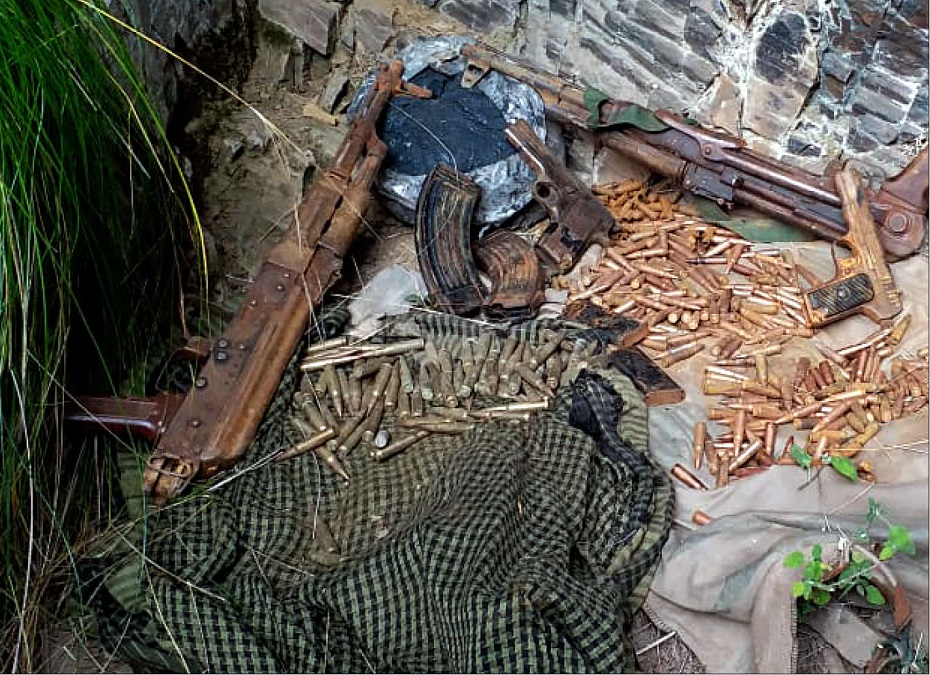Ever since the ceasefire agreement was called off on 9 December, both the Pakistan Army and the TTP have resumed attacks on each other, due to which the Pakistan Army is now recalibrating its resources from its eastern borders (bordering India) to the western side where TTP has influence.
New Delhi: A compromise with the Tehreek-e-Taliban Pakistan (TTP), also known as Pakistan Taliban, by using gun, money and other influences, is being aggressively sought by the Pakistan Army as it is using a considerable number of men and resources to tackle the TTP, which in turn is diluting Pakistan military’s ability to meet “external challenges” (read India).
Due to the challenges posed by the TTP since 2007, the Pakistan military has not been able to focus on modernizing itself as it has been wanting to by way of investing on larger programs and assets used for external challenges like military tanks, fighter jets, missiles and warships as it was forced to invest on “smaller” acquisitions needed to tackle the TTP and other allied groups.
Pakistan’s military strategists, in wake of the internal situation attributed to TTP, have been investing in purchasing better guns and similar equipment and recruiting men to augment its forces that are fighting these groups. Such investments were necessitated in view of the two anti-TTP operations that the Army was forced to launch in 2014—Operation Zarb-e-Azb (Great Strike), followed by Operation Radd-ul-Fasaad (elimination of discord or violence).
However, both these operations had a “moderate” and “temporary” impact despite massive investments and loss of men.
It is due to this exigency that the Afghan Taliban and the Haqqani network, on the directions issued by the Chinese government officials, used their influence over the TTP to bring them to the discussion table in an effort to reach a ceasefire with the Pakistan Army. The ceasefire, however, could not last beyond a month, with the TTP claiming that the Army reneged on its promises that it had made to the TTP before finalizing the ceasefire agreement.
The Sunday Guardian had reliably learnt that the Pakistan military, after the ceasefire collapsed, had approached the TTP through tribal leaders earlier last week and asked them to persuade TTP chief Noor Wali Mehsud to come to the discussion table again. Mehsud, in the meeting that was held in Paktika province, refused to accede to the demand, following which Pakistan National Security Advisor, Moeed Yususf was asked by GHQ to travel to Kabul personally and put pressure on the Haqqanis so that the TTP agrees to cease fire. However, Yusuf’s two-day tour, scheduled for early this week, was postponed without any reason being assigned.
Ever since the ceasefire agreement was called off on 9 December, both the Pakistan Army and the TTP have resumed attacks on each other, due to which the Pakistan Army is now recalibrating its resources from its eastern borders (bordering India) to the Western side where TTP has influence.
Post the cancellation of the cease fire, the TTP, with the intent to show its capabilities, has started attacking policemen and Army personnel with alarming frequency. As per the details available publicly, the TTP has carried out eight attacks in different parts of the country, including in the highly secure Islamabad, in the last two days, killing and injuring more than ten security personnel.
While the security personnel were able to kill the TTP members, identified as Omar and Zarar, before they could carry out any act, but TTP’s presence in Islamabad had set off alarm bells at Inter-Services Intelligence (ISI’s) Directorate’s multi storied office at Aabpara, Muhamaad Mansa road, Islamabad.
As per TTP, they have carried out at least 20 attacks in January across Pakistan. The targets, they claim, have mostly been policemen in urban areas rather than attacks on military posts on the border or in remote areas. The Pakistan military on the other hand, in close coordination with the Afghan Taliban and the Haqqanis, has eliminated at least two former senior functionaries and arrested scores of lower level TTP cadre.
Pakistan’s 2021-22 budget had announced it would allocate Rs 8.48 trillion (Pakistani rupee) on the armed services, which constitute 16% of the total outlay of the budget and 2.54% of the country’s GDP.
Independent sources, who closely follow the military expenditure made by Pakistan, believe that the budgetary announcement, however, does not give a complete picture as to the total money that is used by the military, which is considered as the most powerful institution of the country.
According to them, close to Rs 350 billion, that is to be paid to retired military men, is not a part of the defence budget. Similarly, big purchases are also funded under separate heads along-with development of nuclear weapons and assets and not under defence allotment.
In the 2021-22 budget, as per official documents, the Pakistan Army got close to 48% of the total allocation, followed by Air Force (21%), Navy (11%), and the rest 20% is shared by Inter-Services agencies.
Details collected by Stockholm International Peace Research Institute (SIPRI), an independent international institute that researches conflict, armaments and arms control, shows why Pakistan military generals are worried over the revival of conflict with the TTP.
In the last 5 years, the Pakistan military has been unable to make any big investment on military hardware. Over 90% of whatever it has bought in the said time period has come from China. In the long run, military experts believe, over reliance on one producer and lack of weapons based from multiple sources, proves to be detrimental to any military, something the Pakistan generals too are aware of.
However, due to its internal financial issues, it has been forced to “buy” weapons from China, its “iron brother”, which while supplying it with weapons, ensures the payment is done in kind and not in cash.

